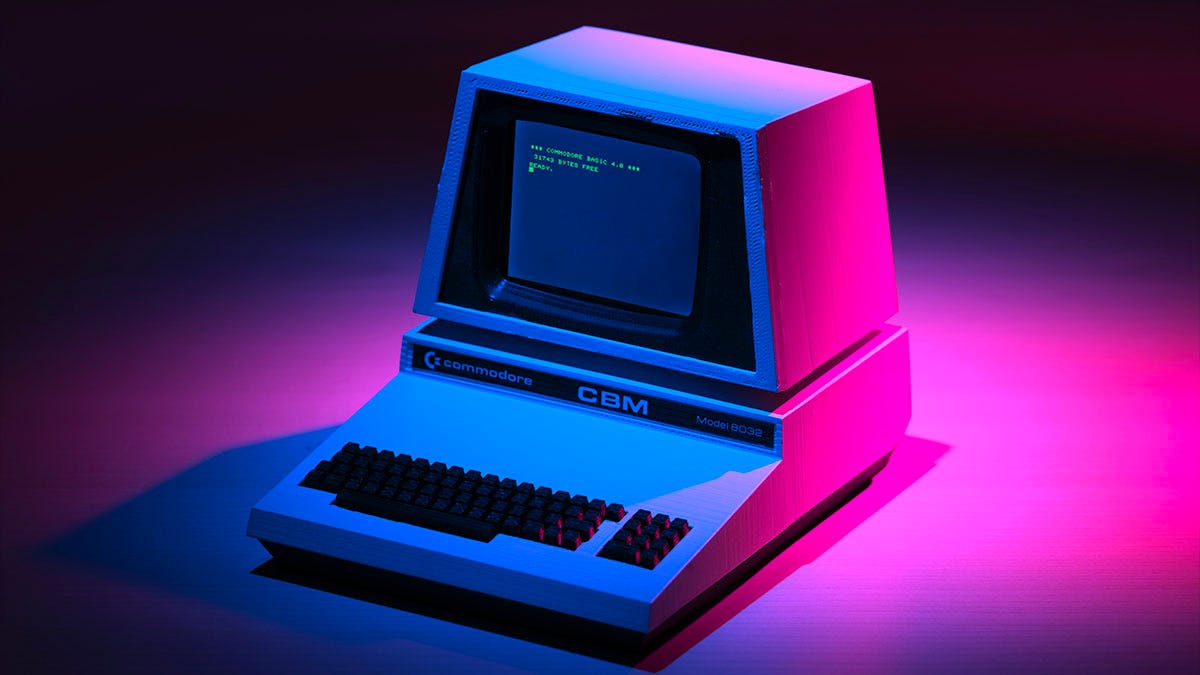why everything old is suddenly new again
Social networks are niche again, we have to pay for news, and we don't trust anyone on the web. The 00's are back, but now, with a new, curdled, delusional, and unhinged techno-utopianism.
A profound change is slowly propagating through the digital world. Social platforms of the past decade, the ones that seemed like the harbingers of the new world order and functioned as our de facto public square are beginning to fray, losing active users. We are once again being asked to pay for news and ad free experiences. Searches are far more difficult and less helpful than they used to be. In fact, the whole of Web 2.0 has been crumbling under the face of relentless over-commercialization. Because we are the product, our experience was secondary to maximizing ad revenue and dividends for shareholders, so it was degraded until we’ve noticed and vocally protested.
We’ve often heard of companies being sacrificed out of greed, but now, it’s an entire global ecosystem was effectively hollowed out to meet ever loftier and less realistic growth targets of ever greedier investors. Social networks and Google promised that their offerings would connect humanity, enrich our lives, and offer instant education at the press of a button. What we were sold was a utopia for the price of watching a few ads here and there. What we got was a cyberpunk dystopia which paralyzed societies and empowered their worst and most hateful members, made shared reality a matter of opinion, and allowed anyone with a few bucks to effectively stalk us.
And this is why people are moving back to chat apps and exploring social media built using the ActivityPub protocol, creating standards of data transfer between different platforms and clusters of users within them. Disenchanted by algorithms, people are effectively reinventing message boards, then connecting them with a very simple set of data and request formatting rules. More people are looking into subscribing to get ad free experiences and high quality news. More and more distrust tech companies to do the right thing and actually make good on promises of a connected utopia after it turned out that this idea wasn’t profitable enough for their owners.
In a way, we’re drifting back to a pre-Web 2.0 era, but having taken all the knocks for tripling down on the original sin of the internet: giving users a free experience funded by advertiser dollars. Blogs reborn as newsletters, streamlined news sites, and tightly focused podcasts are poised for a resurgence. Video is once again becoming one of the best ways to build a brand and advertise yourself. Search startups are looking for Google’s many vulnerabilities and trying to find a model that works better to deliver a more useful set of results with every query. And fewer and fewer people want to take center stage in the public square, disillusioned with the very concept.
back to the future, with a sinister twist
So, in a way, the more things changed, the more they’re rebounding towards a familiar sameness. Yet, one thing has been profoundly altered. Techno-utopianism itself. Like many utopian movements, it soured after its first brush with reality and acquired what can only be described as a deeply dystopian tinge. Far from enabling and connecting humanity, it’s now a mad dash to subjugate them further under the vice-like grip of AI following the tenants of almost religious beliefs about the future of technology. You’ve probably been hearing way less about notions like The Singularity, Longtermism, and LessWrongism, but they’re still very much around and more influential than ever.
If anything, some of the biggest names in tech, both on the engineering and investor side, are now deeply influenced by these complimentary ideologies under the banner of “e/acc,” or effective accelerationism. It’s goal is very simple. Achieve progress at all costs, and by progress they mean digital immortality and AI dominance of all facets of our existence to propel us into a sci-fi future that would be at home in a Love Death + Robots vignette. (If you haven’t seen the anthology, I highly recommend it.) Now, this is a bit of a problem because what they’re effectively saying is “let us burn it all down and have machines and software we own run the world.”
Of course, I’m far from a Luddite. In fact, I work in tech and design large and complex software systems that sound pretty boring at first blush, but are absolutely critical for running the background tasks of a civilization. Much of my work over the past decade and a half could even be seen as less glamorous precursors of the e/acc vision, and a fair bit of what I’ve advocated on the radio and in podcasts sounds very much like the groundwork for global e/acc on the surface level. Me taking a swipe at the philosophy may seem hypocritical all that considered, but there’s a lot of daylight between what technology actually can, or should do, and e/acc advocates’ dreams.
As the popular sentiment goes, every utopia is someone else’s dystopia. In this case, the e/acc utopia is focused on developing technology that can’t exist, replaces liberal democracy with despotic technocracy while substituting expertise with technobabble promising the tech nerd equivalent of the Rapture, and defines progress as delivering whatever the wealthiest, most influential figures in Silicon Valley want not only with no rules, regulations, or restrictions, but without so much as a heckle. Giving anyone and everyone a global platform? Progress. Stopping someone from using this platform to spread hate, lies, and promote violence? Despicable attack on progress.
the irresistible pull of the singularity
If you’re already in the know, you may be wondering if this is all just a long-winded tee up to shred Marc Andreessen’s angry screed about the need to embrace the forward march of technology, or we’re all traitors to progress condemning humanity to certain doom. The answer is no, not exactly, although we will absolutely get to that soon and start scratching under the surface to the aforementioned bizarre ideologies hiding an inch under the verbal facade, aside from just the traditional American red-baiting. It’s more of a prelude to a pivot in the type of content you’ll see in the WoWT newsletter going forward, although it’s been a staple of the blog version for years.
One of the big things Andreessen gets exactly right is that technology is changing the world around us at a mind-blowing rate, affecting every aspect of our lives faster and faster as momentum for profound shifts in what’s possible and what’s next just keeps on building, catching nations and the world at large off guard more and more often by this point. But where he says that societies should just accept it and bow to the latest whim of their tech overlords, my argument is that a) we actually knew this was coming and simply failed to prepare, and b) that it’s dangerously absurd to believe that rules, regulations, and debate are always bad while new technologies are always good.
And yet, technology and science are complicated. It’s difficult to have any meaningful debates the merits of new inventions if we don’t understand them or their intent. This is why it’s not enough for someone like Andreessen or Musk to declare “this is great!” while someone else says “wait a minute, this is stupid!” without explaining the details and technical reasoning behind these critical arguments. Back in the day, I tried to do this, tapering off after the hype about the Singularity died down a little and the topic faded from news and tech sites. Little did I know it would be back, and not just back, but having grown tremendously in scope and influence into a sci-fi pseudo-cult.
I used to treat this topic as an exercise in skeptical, critical thought with just a dash of computer science tidbits thrown in for good measure. Now, it seems prudent to once again roll up my sleeves and go back to my roots. Instead of my typical approach that aims for a wide variety of bleeding edge science tidbits, I will be narrowing my focus to technology, transhumanism, psychology, space, and yes, just a dash of conspiracy debunking. Yes, technology is rapidly changing our world. But we don’t have to fear it or bow to it. We can understand it and harness it so it works for us, not in the name of self-serving, amorphous “progress.” And I want to help people do exactly that.
![[ world of weird things ]](https://substackcdn.com/image/fetch/$s_!V-uR!,w_80,h_80,c_fill,f_auto,q_auto:good,fl_progressive:steep,g_auto/https%3A%2F%2Fsubstack-post-media.s3.amazonaws.com%2Fpublic%2Fimages%2F93728edf-9a13-4b2b-9a33-3ef171b5c8d8_600x600.png)


